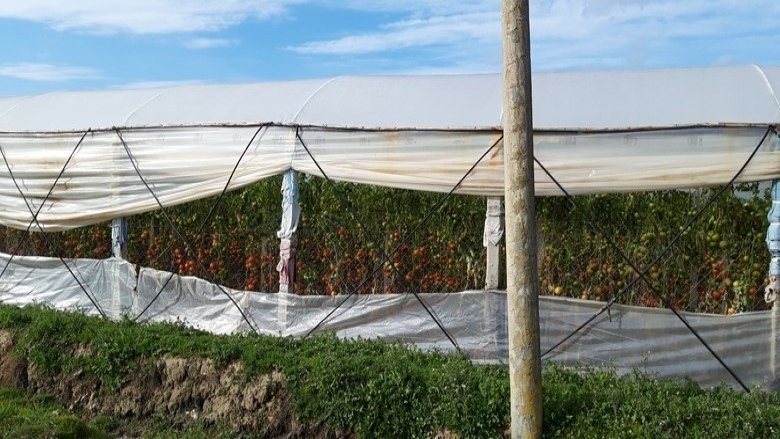Challenge
In 2012, agriculture contributed 21% of Albania’s GDP and accounted for 58% of employment. The industry is central to efforts to reinvigorate Albania’s economy, which in 2011 had begun to flag after more than a decade of strong growth. But irrigation, which plays an essential role in this key industry, was both the country’s largest consumer of water and by far its least efficient one. In 2009, only 22% of the area equipped for irrigation was actually irrigated, and these systems had seriously deficient infrastructure, maintenance, and management.
Albania’s water resource management suffered from deep flaws as well. Ill-defined responsibilities and a single-sector rather than integrated approach led to poor investments, missed opportunities, and wasted resources. These weaknesses also posed a major obstacle to meeting the EU’s Water Framework Directive, a key milestone in Albania’s push to join the EU and benefit from greater regional integration.
Approach
Drawing on its experience from prior irrigation and drainage projects in Albania, the World Bank involved a range of stakeholders in project design and implementation to ensure success.
To overhaul infrastructure, the project financed the rehabilitation and modernization of dams and irrigation systems, as well as the feasibility and design studies for these projects. It also focused on building capacity to maintain and supervise the upgraded works, and on creating a national strategy and standards for irrigation and drainage.
The other major prong of the project’s intervention was institutional support for integrated water resources management. The project supported the development of a national strategy, two river basin management plans, and a national water sources database to more closely align Albania with the EU Water Framework Directive, help it use its water resources more effectively, and give it greater resilience to the impacts of climate change.
Results
The project improved irrigation services for nearly 48,000 water users, 13,715 of whom were women. By the end of the project, the net family incomes of beneficiary farmers increased by an estimated 35-63%, on average. Every single one of the 54 farmers interviewed at the end of the project expressed satisfaction with it and highlighted the increase in water security and reliability during the dry season. The project achieved this enhanced service through infrastructure rehabilitation and capacity building. In addition, the project contributed towards the following results:
- 40,000 hectares area under improved irrigation and drainage
- 13 dams rehabilitated to meet international dam safety standards and lower the risk of severe flooding.
- Irrigation and Drainage Management Information System established for 35 agriculturally intensive municipalities.
- National Irrigation and Drainage Strategy approved by the Council of Ministers on May 22, 2019.
The project also contributed towards approval of the National Strategy for Integrated Water Resources Management (NSIWRM) by the Albanian government in 2018, and two river basin management plans, both approved in 2020. The NSIWRM sets out a clear vision for integrated water resources management in Albania, and lays out a long-term strategy for sustainably managing and developing water resources. The strategic planning process for the NSIWRM strengthened the capacity and commitment of participating agencies and stakeholders in integrated water resources management. Through the project’s support for the NSIWRM and river basin management plans, Albania made significant progress toward meeting EU Water Framework Directive requirements.
Bank Group Contribution
The total cost of the project was $66.11 million. This financing came from two IBRD loans (of $26 million and $35.8 million) and a grant of $4.29 million from the Swedish International Development Cooperation Agency trust fund for institutional support for integrated water resources management.
Partners
For the project, the World Bank partnered with the Swedish International Development Cooperation Agency, which financed the institutional strengthening for water resource management component of the project.
The project involved working with a range of partners from the Government of Albania, such as the Ministry of Agriculture and Rural Development (the implementing agency), the Water Resources Management Agency, and the Office for the Administration of River Basins. Additionally, the project involved working directly with municipalities on irrigation and development, building their capacity after the government transferred responsibility over this area from the Ministry of Agriculture and Rural Development to local governments during the course of the project.
Looking Ahead
Based on its satisfaction with the project, the Government of Albania is already seeking EU or other bilateral assistance to help it implement the new strategy and basin plans. It has initiated a follow-up project financed by the World Bank, the Albania Climate Resilience and Agricultural Development Project (P178715). It has also requested continued World Bank support in applying for a grant from the Western Balkan Investment Fund for prefeasibility studies for 431 dams and associated irrigation networks.
The EU-aligned integrated water resources management principles that guided the project put Albania in a prime position to advance in its EU accession process. With budgetary support from the EU and Austrian government, the Water Resource Management Agency is working to secure approval for a full legal package reflecting these principles.


